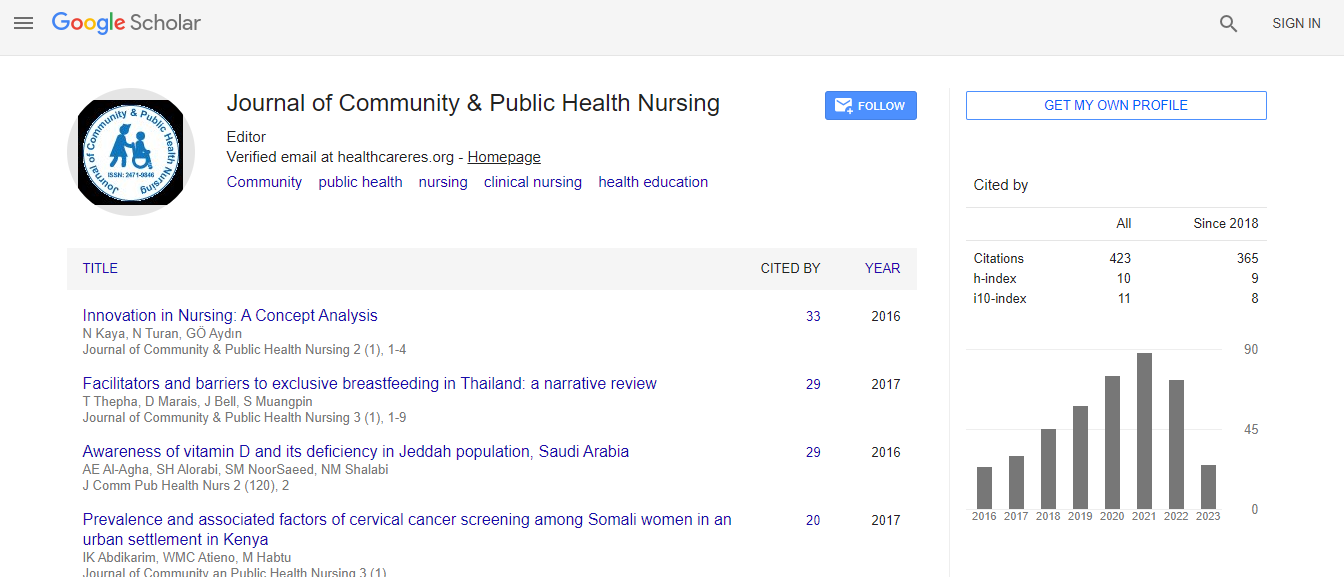Mini Review
Adolescence and Sleep
Luiz Antonio Del Ciampo1* and Leda Regina Lopes Del Ciampo21Department of Puericulture and Pediatrics, Faculty of Medicine of Ribeirão Preto, University of São Paulo, Brazil
2Department of Medicina, Federal University of São Carlos, Brazil
- *Corresponding Author:
- Luiz Antonio Del Ciampo
PH.D., Professor, Doctor, Department of Puericulture and Pediatrics
Faculty of Medicine of Ribeirão Preto, University of São Paulo, Brazil
Tel: 55 16 36022479
E-mail: delciamp@fmrp.usp.br
Received date: July 04, 2016; Accepted date: July 13, 2016; Published date: July 20, 2016
Citation: Ciampo LAD, Ciampo LRLD (2016) Adolescence and Sleep. J Comm Pub Health Nurs 2:131. doi:10.4172/2471-9846.1000131
Copyright: © 2016 Ciampo LAD, et al. This is an open-access article distributed under the terms of the Creative Commons Attribution License, which permits unrestricted use, distribution, and reproduction in any medium, provided the original author and source are credited.
Abstract
Sleep is a physiological condition characterized by a reversible behavioral state with changes in the level of awareness and responsiveness to stimuli and plays a fundamental role related to electrophysiological, neurochemical, anatomical and functional changes of the brain. It is controlled by chronobiological and homeostatic mechanisms and is intensely related to the periods of wakefulness. One of the most immediate results of the poor quality of sleep is the drop in performance on the next day, causing damage during wakefulness, such as drowsiness, mood fluctuations, anxiety, low self-esteem, slow thinking, memory loss, poor school and personal performance, and predisposition to accidents. Sleep plays an important role in the physical and emotional development of adolescents, who are going through a period of intense learning and differentiation. Paradoxically, however, nowadays, several factors contribute to the poor sleep of adolescents because of the social pressures that boost their activities such as excessive use of computer and phone, new affective relationships, parties, etc. All of these factors determine a reduction of nighttime sleep and consequent daytime sleepiness. The objective of the present study was to present some issues related to the physiology of the sleep-wake cycle and its implications in the daily life of teenagers, in an attempt to stimulate the thinking of professionals about the important aspects related to quality and quantity of sleep.

 Spanish
Spanish  Chinese
Chinese  Russian
Russian  German
German  French
French  Japanese
Japanese  Portuguese
Portuguese  Hindi
Hindi 
